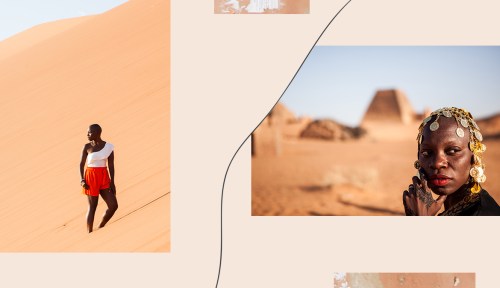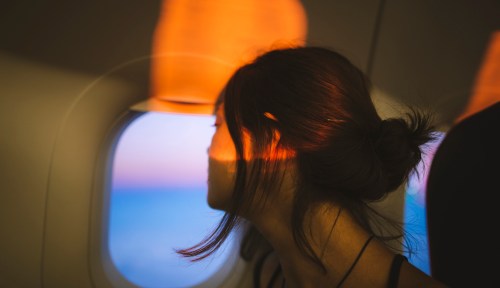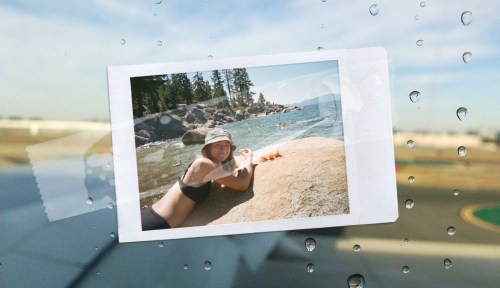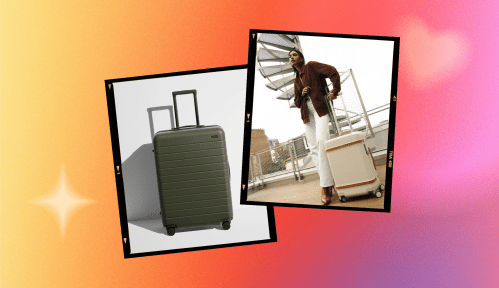Whenever we travel and share our experiences, we become storytellers. Whether you’re photographing, sharing on social media, or just talking about your trips with family and friends, it’s key to be aware of and intentional about how you are telling your story in order to be a conscious traveler—that is, respectful of the places you visit and the people you encounter. From my experience of becoming the first Black woman to visit every country in the world, I’ve learned that in order to be a conscious traveler, it’s key to come from a place of not othering local people, their cultures, or the destination itself, and truly seeing the places as part of our larger global neighborhood and the people as our neighbors.
This way of travel includes not using words like “exotic” or “ethnic” to describe the places you visit or its inhabitants. While locales may be new to you, they are not new period, and describing them as such is a way of positioning yourself as supreme to natives and their culture.
On a grander scale, being a conscious traveler means challenging yourself to consider the “why” for every single thing that you do when traveling, and to question implicit biases you may carry into the rest of the world. Below, I share five tips to be a conscious traveler that I think are crucial to keep in mind as you trot around this beautiful world.
5 travel tips from Jessica Nabongo to help you become a more conscious traveler
1. Be mindful of what, exactly, you’re photographing
While traveling, if you have the impulse to photograph someone who is clearly impoverished and struggling, first ask yourself why you want to take that picture. I imagine you’ll find you can’t really justify the urge, which will make you less inclined to do so.
Putting yourself in other people’s shoes is the best way to be a conscious traveler.
What helps me stay aware and be mindful of any urges that might be exploitative in nature is to think of everyone on this planet as my neighbor, because we want to be kind to our neighbors. If your neighbor is down on their luck, why would you take a picture of them at their worst? Putting yourself in other people’s shoes is the best way to be a conscious traveler.
I also understand that sometimes there’s a desire to show what life is like somewhere, and you want to get a snap of a street scene, or something like that. That can be okay, as long as you stay mindful of your actions. I always ask for permission if there’s a single person in the frame, which is why my subjects are often facing the camera. It may seem corny, but simply treating other people the way you want to be treated is an important skill.
2. Don’t avoid countries just because of their government
In the midst of visiting every country in the world, I’ve been criticized for supporting destinations with tyrannical rulers. But for me, tourism and politics exist on two different planes. When I go to a country, I’m going to meet everyday people, and I’m going to support them. I’m not supporting the government. (I have a master’s degree from the London School of Economics and I worked for the UN for several years, and this is my educated perspective on the matter.) I don’t believe we can equate government, and particularly dictatorships, with the larger population.
Recently, a Venezuelan woman (who hadn’t been to Venezuela in years) said I shouldn’t travel there because resources in the country are limited, and I would be taking them away from desperate local people. When I visited Venezuela, however, my handler at the airport told me the $5 tip I gave him was the amount of his monthly salary. So, I ended up giving him $20 more dollars, essentially paying him five months of salary. That’s just one example of how my being in that country could positively affect the lives of Venezuelan people. They don’t have much tourism, so my presence in the country put money into people’s pockets that wouldn’t otherwise be there.
[Editor’s note: Safety is important, and while supporting people who live in countries with a struggling economy can be helpful, visiting places deemed dangerous is not advised by the United States government. Here is a list of places the U.S. Department of State does not recommend visiting because of safety concerns.]
3. Be careful not to globalize your negative experiences
It’s important to consider how you relay the negative experiences you have in various destinations. I definitely talk about my own negative experiences, but I’m mindful to frame them as personal experiences that won’t necessarily happen to anyone else, let alone everyone else. In other words, my negative experiences aren’t reflective of a city or country or continent, but rather nuanced circumstances.
For example, in Pakistan I was groped and harassed and X-rayed for drugs as I left the country. It was the most traumatic travel experience I’ve ever had, one that was rooted in racism, but I can separate that experience from the rest of the experiences I had in that country. I think Pakistan is amazingly beautiful, Pakistanis are kind people, and the country has an incredibly rich history.
[Editor’s note: Pakistan currently has a Level 3 travel advisory from the Department of State.]
4. Understand the differences between fears with reality
Similarly, it’s important to separate an isolated scary situation—something actively happening that is unsafe—versus what’s happening in your mind. So, for example, I was supposed to meet a friend at the airport, but when I landed in Khartoum, Sudan, my friend was nowhere in sight and I was instead met with a sea of men. Suddenly, my heart started racing, and I was feeling nervous and uncomfortable because I couldn’t see any women, and I couldn’t find my friend. My body was telling me “alert, alert, alert.” But nothing happened to me to make me feel that fear.
No one was doing anything to me to make it an unsafe situation, it just felt unsafe because I’ve been socialized as a woman to feel that way in all-male spaces. With this in mind, I don’t feel it is fair for me to say “the airport in Khartoum is scary.” I was scared, but that doesn’t mean it was scary. It’s important to separate actual danger from your perception of being unsafe, so as not to act as, essentially, bad PR for good places.
[Editor’s note: Sudan currently has a Level 3 travel advisory from the Department of State.]
5. Be considerate of COVID-19 concerns
The pandemic has changed everything, including how we travel. It’s important to respect the comfort level of others, especially when it comes to safety measures like mask wearing and social distancing—regardless of your vaccination status.
And with the delta variant of COVID-19 swirling, it’s really important to get tested before you travel anywhere, even if doing so is not required by your destination. Vaccines haven’t been readily available in all other countries, and you don’t want to bring illness to people just because you need a vacation.
I have been traveling internationally since I was four years old. When I was six, my family and I went to Uganda for the first time and we all had to receive a number of vaccinations. Vaccine requirements for travel are nothing new and it is important to understand that the requirements are in place to keep everyone safe. So if you have access to the COVID-19 vaccine, I recommend you take it, especially when considering foreign travel.
Furthermore, if your desired destination is struggling with COVID-19 cases or lacking in vaccine access, you probably don’t need to visit it right now. To protect yourself and others, opt for destinations where the population has the option of protection from whatever you might carry with you so that you’re not imposing danger on someone who didn’t have the privilege of getting vaccinated.
More generally, I think it’s even more important than ever to lead with kindness when you travel. Tip where you can, because those working in hospitality took a huge financial hit this past year. It’s not all on travelers to shoulder that burden, but for those of us who are able, it’s nice to give—maybe even a bit more than you would normally.
As told to Erin Bunch.
Oh hi! You look like someone who loves free workouts, discounts for cutting-edge wellness brands, and exclusive Well+Good content. Sign up for Well+, our online community of wellness insiders, and unlock your rewards instantly.
Sign Up for Our Daily Newsletter
Get all the latest in wellness, trends, food, fitness, beauty, and more delivered right to your inbox.
Got it, you've been added to our email list.











